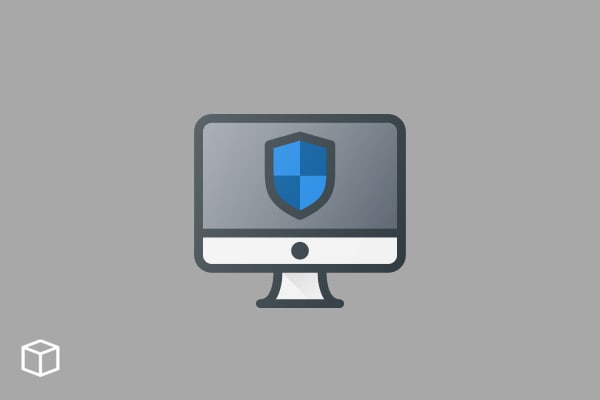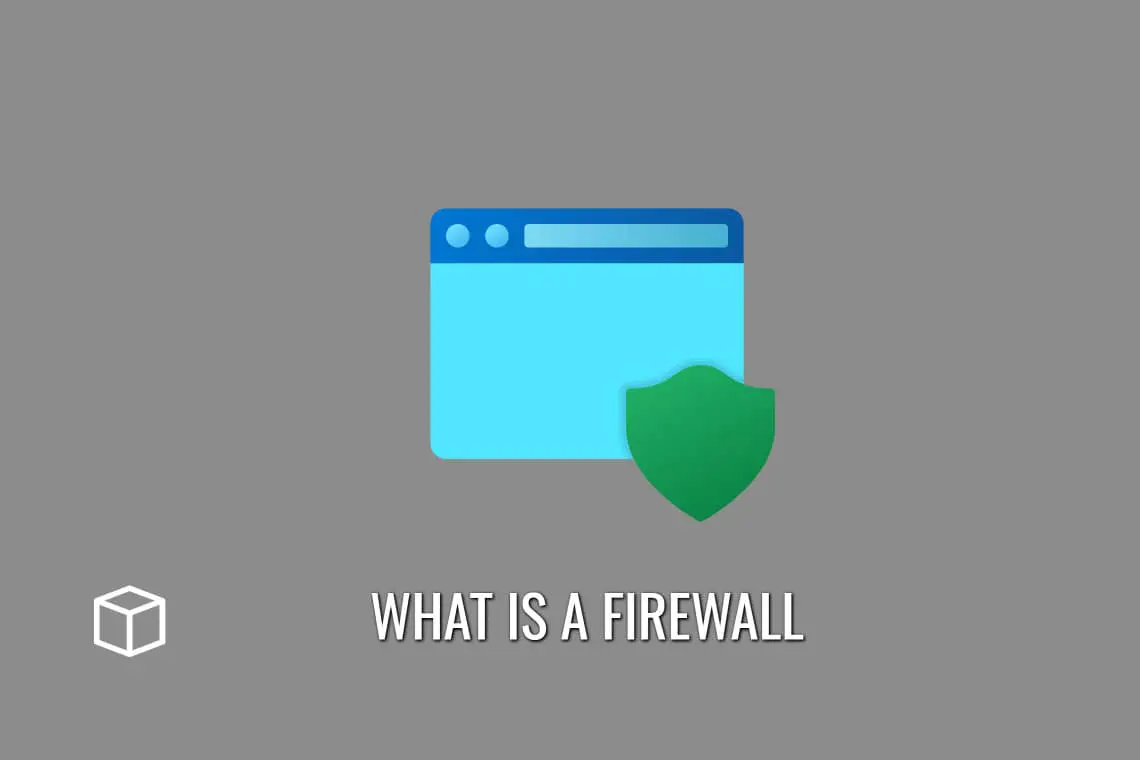A firewall is a software that sits in between two networks and monitors the activity in both.
In this article, you will learn about what is Firewall in detail and how it works.
So let’s begin!
What is a Firewall?
A firewall is a software program that protects your computer from external attacks. What this means is that when someone tries to access your computer from the outside, they will be blocked by the firewall and prevented from entering it. You can set up a firewall on any computer in the world with a broadband connection!
Why do you need a firewall? On the Internet, there are various threats to your computer. Some of these dangers come from system vulnerabilities such as security holes and bugs.

Others come from malicious attacks such as viruses and worms. And finally, there is also the danger of intrusion by hackers.
Firewall will protect you from all these dangers lurking on the internet.
What does a Firewall do?
Firewalls work by establishing a barrier between a network and the Internet. This barrier is created via software that monitors, filters, or blocks traffic from the Internet to the servers within the network.
In a nutshell, firewalls protect systems from unauthorized activity and prevent data leakage. A firewall can be a hardware appliance installed within the network or a software solution that runs on an individual system.
Computer users can implement personal firewalls, which are programs that control the incoming and outgoing traffic associated with port usage. IPtables is an example of a Linux firewall software.
To block unwanted traffic, firewalls filter network data by blocking IP addresses and ports associated with insecure protocols such as Telnet and FTP, which send information as plain text. In order to protect confidentiality or prevent unauthorized changes, some firewalls control the use of removable media as well as the types of files that can be transferred.
However, this control may result in some users being unable to transfer their own legitimate data or use shared resources.
Additionally, firewalls can monitor incoming and outgoing traffic using access control lists (ACLs) to determine whether certain types of network traffic are allowed based on IP address, source ports, destination ports, services, and other factors.

Firewalls are an important part of any security strategy because they offer protection against both internal threats (e.g., users inadvertently or intentionally sharing confidential information) as well as external threats (e.g. hackers).
The primary job of a firewall is to block traffic that does not meet security requirements, but firewalls can also act as endpoint security solutions.
Many operating systems include a basic firewall that is enabled by default, which you can use to block incoming traffic or to monitor for unauthorized activity within your network.
While these built-in firewalls are sufficient for most users (and often enough protection against the vast majority of threats), some environments have more demanding security requirements that require advanced firewall capabilities.
If you are connected to the Internet, then you need a firewall. Period.
Whether your system is on a public wireless access point or sitting on your home network, not having some sort of protection between your computer and the elements just waiting for an opportunity to attack is foolish.
The firewall can block most types of attacks. While individual firewalls vary in the types of attack they are able to detect and block, all good firewalls have some common features ─ if any packets or connections that are not explicitly allowed are blocked, then the system is considered protected by the firewall.
Using this definition for a firewall, almost any home router can function as a software firewall provided that it is configured properly. However, in order to be effective, they require user intervention and this may not always happen.
The most important part of the firewall is what we call stateful inspection ─ when an incoming packet is allowed based on current connection information. All modern firewalls, including all of those built into larger routers, include stateful inspection.
There are different types of firewall architectures based on where they sit in terms of what is trying to pass through them ─ the home network or the Internet. The difference comes down to how much information can be inspected by the firewall itself.
If you have a firewall sitting on your home network, then it is able to look deeper into the packets ─ more inspecting means a bigger performance hit for your computer. This does allow for better protection, but can impact how fast your connection is.
According to PRNewswire – “The Global Network Security Firewall market size was $3.364 billion in 2020. This is projected to reach $5.14 billion by 2026”. (PRNewswire 2020)
Why Firewall is important?
Firewall is the kind of security measure that restricts access to a particular computer system. The firewall filters information, data, and packets by examining them for quality, size, content or other attributes.
The purpose of this filtering process is to allow only authorized data packets through the firewall to enter or exit into or out of your network.
The firewall should be security software running on the hardware. It may also be a part of another internet security suite.
As with many similar programs, it should be configured to automatically check for updates periodically.
Firewalls are important for companies who have public networks or customers connecting remotely because they can prevent unauthorized persons from accessing company computers and compromising them.
History of Firewall
Firewalls were originally developed by programmers to protect their own systems. Peter G. Neumann, a computer scientist and professor at the University of California at Berkeley, is often credited with inventing firewalls when he wrote a program in 1983 that became known as “the father of computer security.”
Neumann used this program to test the security of his computer network, and firewalls have evolved over time.
Uses of a Firewall
- Secure your computer from hackers, spyware and other online threats.
- Protects against spam email.
- Helps protect personal information by preventing unauthorized access to company networks.
- Guards against malicious hacking activities and addresses the needs of corporate customers who need to meet their organization’s security policies.
- Enables employees to safely use social networking and cloud computing applications.
Advantages of a Firewall
- You don’t have to worry about viruses.
- It can keep your computer anonymous, so you don’t have to worry about hackers stealing information.
- A firewall blocks unauthorized connections form the internet, you’re completely safe.
- It can fix problems with your PC.
Disadvantages of a Firewall
There are some disadvantages of having a firewall on your computer, one of them being that it can slow down your internet speed.
A firewall also won’t be able to block all intruders due to how sophisticated malware has become. It’s important to have anti-malware protection alongside your firewall to ensure you’re fully protected.
What are the Functions of Firewall?
The functions of a firewall are to block all cross-boundary traffic, monitor external network connections coming in to one side of the firewall, protect open ports, prevent unauthorized execution by unknown programs, control web browsing on workstations, monitor e-mail coming in or going out, or establishing domain security.
Features of a Firewall
For a good firewall, it should have these features:
- It is easy to configure the firewall in order to have more protection.
- People are 100% anonymous on the internet with this type of firewall.
- It is easy to install on various devices with different operating systems. This way, they can be more protected on all their devices.
- Surf anonymously.
- Protects devices from different types of attacks that could hack into your device or steal your information.
- Faster download speeds as well as upload speeds compared to a regular firewall.
- Flexible for people who use more than one device.
- It is an all in one solution for people who use more than one device with different operating systems.
- Block ads and spam on the internet with the paid version of the software. This way, there won’t be any distractions while you browse and it will make your internet experience more enjoyable.
Types of Firewall
The various types of Firewall are:
Packet Filter – This is the oldest firewall, the rules are applied at the packet level. Packet filtering firewalls also known as stateless firewall filters individual packets on any transport layer information and decides whether to allow them through or not based on a predefined rule set. Because of this its performance is very fast and efficient.
Stateful inspection – This firewall can work on application layer which mean that it is fast and efficient. It keeps track of the state of communication sessions, i.e., where they are in a communication process.
Proxy-based firewall – A proxy server acts as an intermediary between your device(s) and the internet, filtering all traffic to ensure your device is protected. It also helps to keep all your devices as well as accounts secure by blocking cyber threats such as malware, viruses and more.
How to turn off Firewall in Windows
You can turn off the firewall by going to the Control Panel -> Administrative Tools -> Windows Firewall. Once in there, you can either turn it off or select which type of software should be allowed to go through.
However, even if you turn it off, a great many programs connect to the Internet and update automatically.
That’s why Windows always enables the Windows Firewall when you start your computer. If there is no firewall in place, any program can make a connection with another computer on the Internet without your permission or knowledge.
This leaves you vulnerable to hackers and other malware such as worms, spyware and viruses.
Which type of server can function as a Firewall?
Proxy server.
What firewall does Global Enterprise Use?
Global Enterprise uses a GB-OS firewall.
What is the difference between hardware firewalls and software firewalls?
A hardware firewall will protect you from the outside world and a software firewall will protect you from a specific device from other internal systems.
Do you need a firewall at home?
This depends on the level of sensitivity you need. For example, if you have a really sensitive equipment at home and you do not feel comfortable connecting it to the web without a firewall, then yes.
Top Firewall Vendors
- Cisco Systems Inc.
- Juniper Networks, Inc.
- Fortinet, Inc.
- Palo Alto Networks, Inc.
- Check Point Software Technologies Ltd.
- FireEye, Inc.
- Symantec Corp.
- Trend Micro Inc.
- A10 Networks, Inc.
- Citrix Systems, Inc.
- Cloudflare, Inc.
- F5 Networks, Inc.
- Akamai Technologies, Inc.
- Sophos Ltd.
You Might Also Like
- What is PayPal and how does it work?
- What is Google Duo and how does it work?
- What is Google Translate and how does it work?
- Free Anime Websites to Watch Anime Online
- What is WhatsApp Web and how it works?
- What is KickStarter and how does it work?
- What is Khan Academy and how does it work?
- What is Udemy and how does it work?
- What is WhatsApp and how does it work?
- What is a Web Browser and how does it work?





